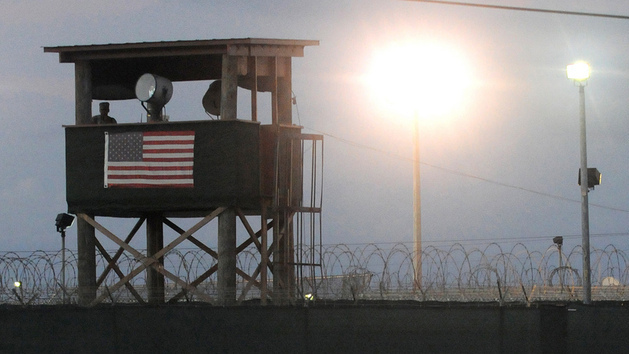
Dajaz1, the hip hop blog whose domain was seized and then held for a year by the United States government before being returned without any charges filed, came out swinging against the government and the Recording Industry Association of America on Monday. In a blog post, Dajaz1 attorney Andrew Bridges called the government's legal position "stunning" and compared the dajaz1.com domain's year in legal limbo to a "digital Guantanamo."
Bridges pointed out that Dajaz1's alleged crime consisted of posting four links to infringing files hosted by third-party websites. "Seizing a blog for linking to four songs, even allegedly infringing ones, is equivalent to seizing the printing press of the New York Times because the newspaper, in its concert calendar, refers readers to four concerts where the promoters of those concerts have failed to pay ASCAP for the performance licenses," he argued.
"The original seizure was unjustified," Bridges wrote. "The delay was unjustified. The secrecy in extensions of the forfeiture deadlines was unjustified."
Indeed, Bridges doesn't just believe the seizure of his own client's site was illegal. He argues that the 2008 PRO-IP Act, which provided the basis for all such seizures, doesn't authorize the seizure of link or locker sites at all. Bridges wrote that the legislation only allows "seizures of property used in connection with the making of, or trafficking in, 'articles' in violation of copyright law." He argued that an intangible song download is not an "article." If his interpretation of the statute is correct, then neither sites that host infringing files nor those that link to them are subject to seizure under the PRO-IP Act.
The government has seized dozens of allegedly infringing link and locker sites over the last two years. The legal experts we talked to didn't rule out Bridges's interpretation of the law, but they were unable to point to any specific court decisions establishing whether a digital download constitutes an "article" under the PRO-IP Act.
I asked Bridges about his contention. "It's a matter of plain language," he told me. "And I believe, based on what I've heard, that in the legislative history no one ever suggested the Act authorized domain seizures in this context."
Bridges also argued that the government violated Dajaz1's due process rights by denying his client the opportunity to defend his interests in court. Bridges said he "repeatedly asked the government attorney to inform the court that my client opposed any further extensions and asked for an opportunity to be heard." But he said the government ignored the request, repeatedly obtaining deadline extensions without asking the judge to hear Dajaz1's side of the story.
Bridges also responded to recent RIAA comments accusing Dajaz1 of repeated lawbreaking. In a statement sent to Ars on Sunday, the recording industry group told us that the trade group referred Dajaz1 to the government for investigation because of "its long history engaging in the unauthorized distribution of copyright content prior to its commercial release." The RIAA says that it was "disappointed" the government chose not to seek forfeiture of the Dajaz1 domain.
"RIAA’s powers of demonization far exceed its ability to substantiate its malicious statements with specific and credible facts," Bridges retorted in Monday's post.
Listing image by Photograph by The U.S. Army
reader comments
32